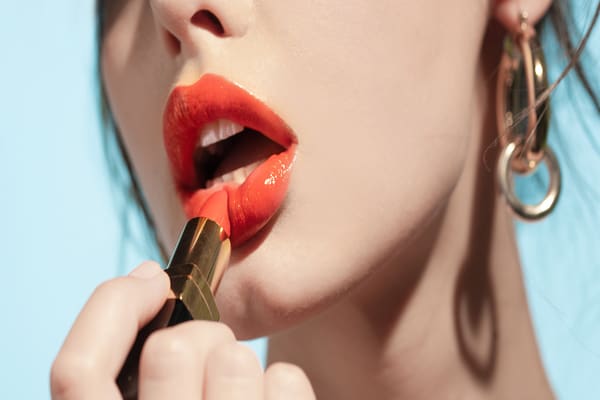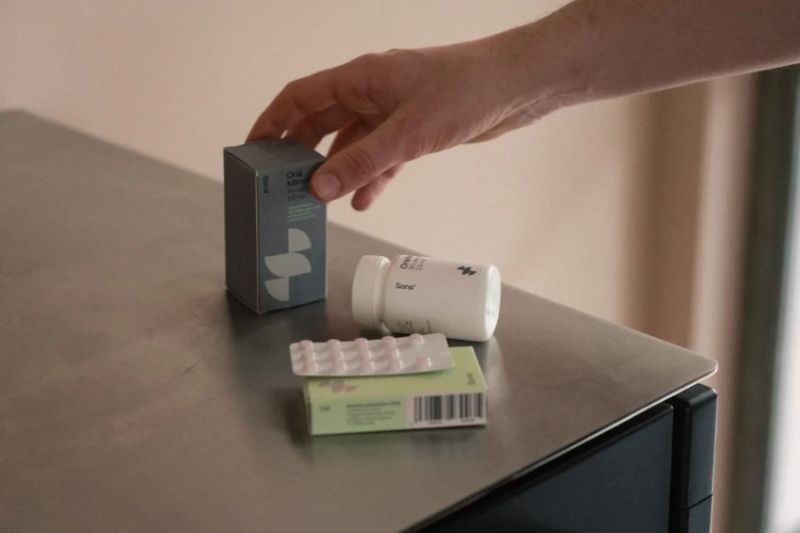The vast majority of global consumers (91%) now preferring to shop for beauty products via social platforms, as just 44% opt to browse for and purchase cosmetics in-store.
Social media platforms are now used by 96% of global internet users, which has only boosted the potential for brands exploring the possibilities of social commerce. Influenster’s research reveals over three quarters (76%) of consumers find themselves ‘very influenced’ to shop via social media, and 73% actively shop the likes of Instagram, Facebook, TikTok and Pinterest.
Whether that’s browsing, scrolling for inspiration, or making a purchase, the technologies being used by brands – be it live shopping events, or virtual AR ‘try-on’ or ‘try-out’ experiences – play right into the demands of the beauty buyer and are drawing consumer attention away from high street beauty counters.
The ease with which beauty products can be showcased via social has set it apart. Beauty is the sector to watch in the shift to social commerce, however this trend is also reflected in consumers’ clothing and homeware shopping preferences. The majority of consumers (81%) are also now shopping for clothes on social media compared to just 57% in-store, and rising home décor trends means 60% also prefer to shop for the home furnishing on social platforms versus 40% in-store.
In comparison, basic necessities such as food and beverage purchases are still happening predominately in-store (58%) compared to social media (47%). However, shopping for electronics is more finely balanced with 42% of consumers shopping for electronics via social platforms compared to 39% in-store.
The social media influence
Be it beauty hacks, travel secrets or home renovation tips, social media users will never be short on new ideas, with almost two thirds (65%) of consumers turning to social platforms for shopping inspiration. This is in part due to the rise of more authentic nano and micro-influencers, with as many consumers shopping based on influencer recommendations and links shared by influencers, as they are from brands they follow (60%).
Brand content does still have a place in social commerce, but influencer recommendations have now become so influential that traditional social media advertising has taken a back seat. Just 28% of consumers now shop from banner ads they’ve seen for products they’ve looked at before, pushing brands to look towards relevant influencers as part of their social media strategy.
Not all influencers are made the same, however, and research from Bazaarvoice revealed that subject matter experts – such as beauty gurus – are viewed as the most trusted by consumers to share authentic and genuine content (39%).
With the goal to publish content that resonates with their following, subject matter experts are high up on the target list for brands, being trusted to recommend, sell or post sponsored content for products relevant to their subject matter. As such, this latest research from Bazaarvoice’s Influenster community shows 35% of consumers prefer to shop from these more genuine influencers over celebrities (5%). Alongside this, 55% of consumers are shopping on social media as a result of recommendations from friends and family – otherwise known as everyday influencers.
Ed Hill, SVP EMEA, Bazaarvoice comments: “The beauty industry has a real advantage when it comes to social commerce, as social media has long been a place for consumers to share beauty tips, recommendations and advice with their community of followers. There is a notable cross-over between the demographic of shoppers looking to purchase beauty products and those who use social media, and so it’s almost inevitable that this consumer group will want to share their experiences with others on social media. Indeed, platforms like TikTok have ushered in a new era in the way consumers consume content and this is only set to continue to grow, with our research finding a third of consumers now shop from social video content. This, coupled with new capabilities like Instagram’s live shopping feature or Pinterest’s AR makeup try-on technology, means consumers can receive a fulfilled shopping experience from the palm of their hand – and most importantly, they can share those experiences with others.”
“The rise of social commerce has signified a real shift away from B2C to C2C (business-to-consumer to consumer-to-consumer), as user-generated content (UGC) has become hugely influential for consumers. Content from other consumers, whether they’re subject matter experts or everyday influencers, brings credibility and authenticity to the shopping experience that brand content alone can’t emulate. Consumers have become advocates for beauty brands and products through UGC, and these unofficial ambassadors should be a key consideration for brand marketers in future,” Hill concludes.









